Devon Trevarrow Flaherty's Blog, page 10
July 18, 2024
Book Review: Universal Love
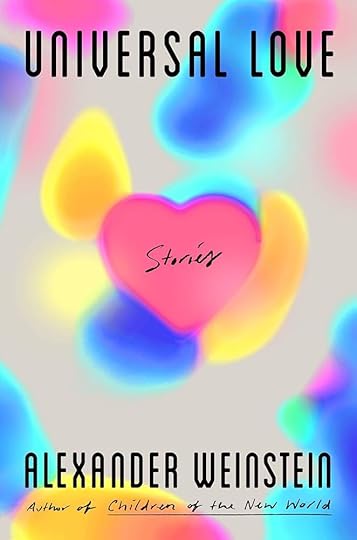
I enjoyed reading Universal Love by Alexander Weinstein. I would recommend it. (I did already, to my husband.) There are some things to mention, like how I know the author. There are other things, like how my husband has become a huge fan. (He doesn’t know the author.) If there is any part of you that would like to read a book of sci-fi short stories, or if you like Black Mirror especially when the stories are about tech, then this is a must-read for you. And good news, there is another book from Weinstein with the same type of short stories inside.
These stories are definitely thematic, but not connected to one another in more obvious ways. In each, we encounter a world that is recognizable but that has advanced in technology in some specific way. This “advance” has created yet another barrier to relationship/to love. Insightful and interesting, the stories each end with a mixture of bittersweet: both prophetic doomsday warning and the extension of hopeful endurance of humanity, even if it’s just a thing flickering fragilely yet insistent in the background. From a dating app that substitutes for all relationships, to a pair of robotic, adopted children in a world where robots become addicted to huffing their own components, Weinstein goes where our questions are and extends out beyond in a reading that is both entertaining and thought-provoking.
I was going to say that it is best to read this book of short stories with some space between each one, letting the emotions and the world of each story dissipate before diving into the next one—giving the feelings and thoughts space for real-life palate cleansing. However, my husband read this book in like a day or two. Then he picked up the other Weinstein short story book and read that one in like a day or three. To each his own, then. I suppose this is on-brand for me, to read collections over time with space between. I probably just get distracted the second there’s some sort of break in a book. (Thank goodness there are authors who use cliff hangers and suspense.)
I do know Alexander Weinstein. He is the founder and director of Martha’s Vineyard Institute of Creative Writing. Three years ago I received a fellowship from the MVICW; the conference was moved online due to a worsening of the Pandemic so I only “met” him online while hunkered down in a Del Ray Beach condo. I ordered his book then (when it was new), and it’s been floating around my house ever since. Then when I reapplied this year for the first in-person, post-Pandemic MVICW conference I received another (different) fellowship and spent a long week in Martha’s Vineyard with Weinstein, four other teaching authors, and 52 other writers. In preparation, I read Universal Love, then bought Children of the New World while there and got it signed. Which means that I read this book before actually meeting Weinstein and my opinions are what they were before. But it also means that I have a relationship of sorts with the author (including him doing a manuscript evaluation on one of my sc-fi short stories) and maybe you should know that.

Come what may, I was impressed with this book and was intrigued with each new idea and story. All the stories are written well and contain fascinating (sometimes disturbing) glimpses of our future which in turn throw light on our present (in the true nature of sci-fi). The writing is on the literary side yet really easy to read and the sci-fi elements are on the light side, usually. There isn’t going to be any deep world-building here, just a gentle dip into a slightly different possibility. Highly recommend. From virtual aliens to holograms of your dead mother, this is a great read, a not-to-miss if you like the genre.
Note: There is a second cover design that is harder to find, but which comes across better than the candy-colored one with the heart. I like the heart cover fine, but it doesn’t say what it should be saying to a passing browser.


Alexander Weinstein is the founder and director of Martha’s Vineyard Institute of Creative Writing. That’s not usually the first thing in his bio, though. He is an author of two books of short stories, Universal Love and Children of the New World. Children of the New World was published first and received great reviews from the highest places, including a New York Times 100 Notable Books of the Year and a number of “best ofs” mentions, from like NPR and Google. Unfortunately, his second book was published about a moment into the Pandemic and it was far from the only book that fell flat due to the market and the state of things. In my husband’s opinion, though, the second one is better than the first, meaning that the problem was all about the timing and that I need to get around to reading Children so I can weigh in.
His short stories have appeared in some impressive places, including American Science Fiction and Fantasy, Rolling Stone, Pleiades, Lightspeed, Adroit, and Best American Experimental Writing. He has won some awards including an honorable mention for the Pushcart and has had reviews in The New York Times and The Atlantic. He is a professor of creative writing at Siena Heights University in Michigan. He is currently working in film and, I think (I might be remembering wrong), working on a novel.

“‘Honey,’ she said and lit a cigarette in the car. ‘You never seemed that interested in my life.’ / And, for the first time, I understood that I hadn’t been” (p25, “A Year of Nostalgia”).
“It was like living in an expensive apocalypse where everyone’s dying slowly but drinking cold=brewed nitro lattes” (p66, “Comfort Porn”).
“One could always have it removed, we reasoned. And we turned to our husbands and wives–our companions who should have stopped us–but they, too, were exhausted from all the pleading” (p79, “We Only Wanted Their Happiness”).
“And soon we found ourselves in one of two camps: those who’d fed ants sugar crystals and watched them build tunnels in glass terrariums, and those who’d held magnifying glasses over their backs to watch them curl and incinerate under the sun’s concentrated ray” (p150, “Sanctuary”).
“Our visitors didn’t need to tear us apart–we were doing that ourselves–and the distance they’d traveled was far less than the gulf between us and our own neighbors” (p156, “Sanctuary”).
July 14, 2024
Writer in the Wild: Spring NCWN Conference
Way back in the spring, I went to a writing conference and didn’t tell. I wrote some notes for you, typed them up, and then got too busy with reviews and other things to share what it was like.
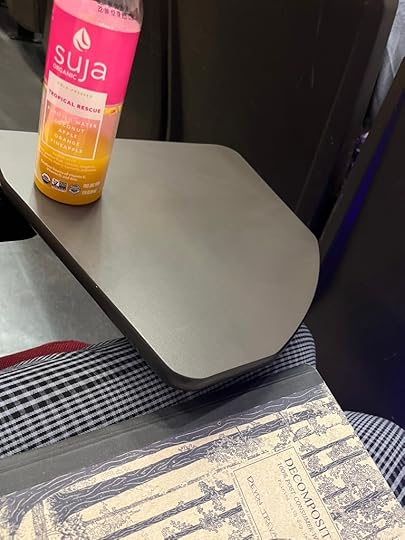
North Carolina has a good writing network. I mean, there might be better, but there is definitely worse. I have been more involved in the NC Writers’ Network this year, having finally joined for the discount to the conference (and possibly the fall conference). A friend of mine has been encouraging me to join for years, even if it’s just to support the network. I have taken a workshop from them in the past and gone to some readings and their book club (once). Since the spring conference was an hour’s drive away and was only for one whole day, I decided I would try it out (without having to get a room).
I am glad that I went. It was exhausting for me as an introvert and neurodivergent, but a) it’s always nice to be around a bunch of other people who are as passionate as you are about something and as desirous of talking shop animatedly; b) I met someone who connected me with a local writing group that I am now an active member of; c) I met a bunch of NC authors; d) I learned from the workshops, readings, and even the Slush Pile Live. I guess you could also say it was preparing for the week-long conference that I had coming up (more on that later). Sometimes, too, I generate a lot of stuff from these things, but this time I only had a few paragraphs of ideas when I got home, which is totally fine for me at this point—I actually don’t need any new ideas. I also sat and admired some writing from people I had never heard of before.
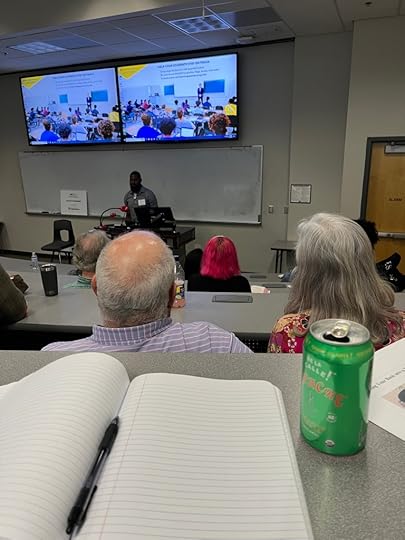
Note to the willing-to-be-wise: don’t wait until the last minute to sign up for conference classes and events. It may be the case (as it was with this one) that classes and events fill up and then you won’t get what you want. Actually, for NCWN’s spring conference every year, they offer Master Classes which you have to apply for. I was waiting on funding (which sometimes you have to do) and missed the deadlines for these, completely. But word to the super-wise: sometimes it’s best to miss a deadline and end up with the less-popular events. That way you get more one-on-one time and better access to the teacher, who is also probably an amazing person. Maybe more so. So stay grateful and open to learning, no matter what.
I’m going to give you my notes from the addresses and workshops I ended up in:
Jill McCorkle’s opening address:
“We’ll never be as smart as our subconscious.”“You’ll never be the writer you should be until you’ve dealt with your mother issues.”“If it’s not one thing, it’s the mother.”—when something’s missing in a story. Occasionally it’s the father.Great prompt for anytime: close your eyes and put yourself in a room you haven’t been in in a long time.Ambiguous endings must have specific details to form the emotional resonance.“Better to remain silent and be thought a fool than to open one’s mouth and remove all doubt” -different attributesA child can understand with a leap of imagination what an adult cannot due to a dangerous little bit of knowledge. [I saw this play out in technicolor once, when my toddler daughter started catching minnows in a popular park’s pool. People were amazed and no one else could do it. I realized that since she hadn’t learned yet that it was difficult to do or that she “couldn’t” do it, she just did it without thinking.]“Intolerance is an inability to entertain ambiguity.” -someone else, maybe a rephrase from Theodor Adorno.The simplest judgement is the weakest choice.Get in the dark house and stay there until you find something shiny.We write what and what and what, but also how and why.“The more we study, the more we discover our ignorance.” -Percy Bysshe ShelleyFlash fiction workshop with Hananah Zaheer:
Flash has been around longer in other cultures and looks different.Coming to writing from other jobs allows writers to have an open mind about form, process, etc.Some forms of original flash: parables, fables, Jataka stories, Zen Koan, Islamic/Sufi tales, Aesop’s…More modern short stories: Calvino, Sa’adi, Tsuzuki, Kawabata, Hasan, Manto, Borges, Allende, Marquez, Whitman, Chopin, Hemingway, Chekov, KafkaContemporary flash: Cisneros, Lydia Davis, Kathy Fish, Yoko Tawada, Banana Yoshimoto, Shinki Iishi, Venita Blackburn, Amber Sparks. Citizen, Claudia Rankin, Ghazal, Kennings, KoansBoy from Smokelong Quarterly; Girl, Jamaica Kincaid; Dinosaur, Bruce Holland RogersThe novel as a mammal, cow, tiger; the short as fish, bird; flash as insect. -VelenzuelaRules: 1000 words, action, beginning middle and end, often twist ending. Has a whole world under it, like an iceberg. Prompts you to fill the holes and tell the story in your head. Instead of these are the rules, think what can I do?Flash is naturally rebellious.Good anxiety is good fiction.“Yearning is the texture that makes it a story.”Change the lens, source of pressure, disrupt time, rewrite it backwards, change POV, add mystery, use imperative…“Write a short story a week. You can’t write 52 shitty stories in a row.” -Ray BradburySubmissions (revise and resubmit) workshop with Lisa Williams Kline:
Think of percentages as batting averages instead of academic grades.Writers can become story-blind when they’ve spent so much time with a book.Not all writers are good re-writers. (Also, take your time.) That’s me on the middle bench.
That’s me on the middle bench.That’s it. Just a little bit of insight from this particular moment in time. For more general things, I went to the internet and Pinterest and asked and came up with a killer outfit, and knew to have certain things on me like pens and a notebook, water, a granola bar, a short reading, a small m/s just in case, one page for the Slush Pile Live, a few copies of my books for the bookstore, business cards, etc. (For the record, I neither sold any books nor handed out that manuscript, but I could have.) I took the wrong bag though, and bought a sort of purse/briefcase for the next conference when I got home. Sure, I had everything (including a lunch that worked with my allergies), but it was a lot to carry around all day. Personally, I find a laptop unnecessary at these things.
July 13, 2024
Book Review: Fourth Wing
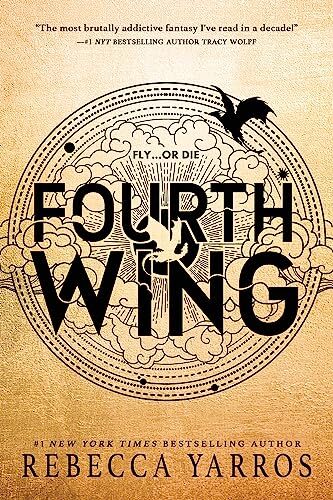
In case you were wondering, there is actually not that much sex in Rebecca Yarro’s Fourth Wing, besides Violet’s frequent internal diatribe about how attracted she is to one of the other characters and the frat-boy conversations between the characters. But the sex scenes that are there are lengthy and extremely graphic, down to the details. Personally, I was just glad that the sex in this series, so far, isn’t super messed up, like in Game of Thrones or Uplander. You can even skip the scenes if you want; what you need to know is that sex between our leading lovers is always mind-blowing in a completely unrealistic way and also that their magic (or the dragons’ magic, officially) makes it even more mind-blowing as well as violent in a kinda funny way (like they break things and blow things up on accident). But that’s not all I have to say about this book. It just addresses what I kept hearing about it before I read it.
Synopsis: Despite her commander-in-chief mother and her tough, brave, accomplished older sister and brother, Violet was headed to the Scribe Quadrant to live a quiet life with her big brains and memories of her father. But mommy dearest pulls a fast one at the last minute and Violet finds herself queuing up for the entrance to the elite dragon riders, a line that leads to a 20 per cent death rate in the first day. And Violet isn’t only petite, she’s also brittle. But if she wants to survive to graduate, let alone live till next week, she’s got to dig deep and do the impossible: bond with a dragon, despite enemies on every side, despite the odds, despite the secrets that her mother and the government may be keeping.
Why did I read this book? Because everybody and their sister is reading this book/has read this book. At least it seemed like it, until I started mentioning it to odd strangers and many of them were like, “Fourth What?” But in the world of books and bookstores, in the world of popular fantasy (especially romantasy) this book has been hot for the past year-plus. The second installment (Iron Flame) also did really well when it was published last October. The third book out of the five that are supposed to compose the series, Onyx Storm, is due for release January 21, 2025. So despite all the buzz about this series being sexually graphic, I thought I would need to give it a read.
Sometimes I wait until I am done with a series to review them all together. I won’t be doing that this time. Why? The books are super long. And we are in the middle of publication. I can’t be expected to hold back on the review of earlier books for years at a time.
Okay then, let’s just dive right in: is it sexually graphic? It is, sorta, a little, in some ways… I mean, there are some sex scenes (only like two or maybe three, actually), and those are detailed although they are also unrealistic in both real ways and magical ways; in other words, the sex is way over the top. Besides that, though, the book isn’t particularly raunchy, but it is, as some reviewer put it, a little bit middle school boy. I would maybe say college frat guy. The point is, Violet does think and others around her talk in a way that regularly objectifies those around her/them. There are reasons for this: they are living apart from adults (except teachers/trainers), are young, are living very physical and very stressful lives, and (the reason given in the book) they have short life expectancy: they might die like tomorrow, or this week. Put all that together with the social mores of the Empyrean world which involve the acceptance—even encouragement—of casual sex, and you have a book full of horny characters. I did have a problem with how much Violet objectified men. Sure, it’s kinda payback and a part of me enjoyed it for that reason, but officially I am not a fan of any person (real or fictional) being objectified, no matter the gender. And one last thing about this: I said to a questioning, potential reader that I have a personal standard for the books I read when it comes to the sex, and that is that the sex can’t be wrong and played off nonchalantly (or worse). For example, all the rape in Outlander was a big no for me (which is a more complicated reason than you might think; see my review for details). Another example, the incest and pedophilia (though culturally that’s not what it was, sure) in Game of Thrones had me setting it aside before I was done with the first book. I may re-approach the latter, may skip over some things, but the point remains: if the sex is weirding me out but I’m supposed to be okay with it, then I’m out. The sex in Fourth Wing was at least consensual and had some strains of love and respect in it, etc. I kinda laughed at it, to be honest, given the over-the-top ridiculousness.
Now let’s get to the meat of the review.
The book starts off strong. The first chapter is, in my estimation, picture perfect, including the risk that Yarros took introducing us to six characters right off the bat, only to kill one of them before the end of the chapter. It lets us know what we’re in for. It startles the reader, grabs our attention from the first paragraph. After that? The writing is fine. There are like no grammatical mistakes or typos, which is pretty amazing. I’m not blown away by the style or voice or poetry or anything. The point gets across and the world is built for us, the characters forming while we are addicted to turning the pages.
It is written in first person, present tense. I have a theory: people in their twenties grew up with YA that was very prominent and very distinct (before that it was nearly nonexistent), so they are now adults expecting a closeness of voice that we in the book world had been attributing to YA as a genre. This intimacy with character and immediacy of story that often uses first person present, therefore, is their norm. It is not the stuff I grew up on, but I imagine that it will persist in expanding into books that are not middle grades or YA because this is what kids are reading now as they grow up. For this book it was not very distracting (like it wasn’t in The Hunger Games trilogy), though it did make the tone youthful in that self-absorbed way (immature?) even though these characters were in their twenties and the book is meant for straight-up adults. I mean, twenty years ago you couldn’t even get a collage-age kid MC book published. Now our adult books are riddled with these characters as well as the YA voice and style. I would think that this voice is going to grate on some readers who expect a more traditional fantasy voice.
I believe this character-intimacy is why the few naysayers point out a shallowness to the characters. We are extremely close in voice, so we almost only have the ability to develop Violet in our head (and then Xaden, who takes the last chapter). Everyone else is just too far away for us to get to know in depth, which is a fault of this type of story-telling (and one that, in my opinion, people should out-grow). But yes, I do find all of the other characters a little flat, especially Violet’s besties. Perhaps this is also due to just how many characters there are. It’s difficult to keep them straight—but quite frankly, we have to have enough so that a bunch of them can die. I say all this, but Suzanne Collins developed the characters in The Hunger Games better, even under the same situation (first person, present, YA-feel, a violent world, a set-up where a huge number of the characters were going to have to die eventually). I liked all these people in Fourth Wing, but loved? Felt invested? I dunno.
Speaking of which, the book is brutal, violent, and there is plenty of death. If that’s not something you can stomach—just like in The Hunger Games, yes again I mention it—you’ll need to move on. This is a story about war, military, and dangerous lives (like lion tamers times ten or a hundred). It’s magical, too, and involves dragons and other mythical creatures, the dragons in this world being super-lethal. If you like that sort of high-stakes and bodily-strong story, if you want to see a young woman be bad-ass despite her physical limitations (which I am still a little unclear about, BTW), then this is the series for you. Traditional training and brute force. Traditional steamy romance.
Another traditional element? The world and world-building. We’ve now absorbed the whole fantasy school setting into the fantasy genre, and this fantasy school (military training as a trade sort of thing) is in an otherwise fairly recognizable fantasy world. Like I said, dragons. Dragon-riders even. Magic which has to be discovered, trained, and then requires something of the user. A link between magic and dragons. Other schools, like for scribes and healers and the regular, non-dragon infantry. (Dragon riders are like Special Forces/Air Force.) We have our underdog and a quest. We have a detailed, clear world within the limits of the Basgiath War College—and even a little outside of it. There are rules and hierarchy and societal norms, all of which we understand without having to think too hard about it. Violet is placed in a world we understand and enjoy, at least in a certain manner of speaking.
Was it predictable? Did I see things coming? Yes and no. There were enough surprises in the world and in the near-constant action, but it was pretty darn easy to see the main things coming a mile away. And yet, in some cases, we are hoping we’re wrong or wondering about the deets, so tension is totally keeping the pages turning, whether we think we know what’s ahead or not.
My overall take on Fourth Wing, the first book in the series: it’s a good story and I’ll definitely keep reading it. I am not sure exactly what makes stories addictive, but this one 100% has it (like Madeline Miller’s books and Emily Henry’s books and the Twilight series). It’s a stay-up-late-and-read book. I went ahead and asked my husband to take it from me at 11pm so that I would go to sleep and be a good mom during her son’s finals week. Then I asked him not to return it till 5pm, when I’d had enough time to put in a full day of work. This is after I stayed up too late and then lost most of a day of work reading. There are worse things, right?

“Remember that firsthand accounts are always more accurate, but you have to look deeper, Violet. You have to see who is telling the story” (p220).
“But keeping me safe is keeping me from growing, too” (p286).
“I’m not mad that [redacted] is dead. We both know he’s wanted to kill me since Parapet, and eventually he would have. I’m mad that him dying changes me” (p370).
July 11, 2024
Writer in the Wild: The Smallest Post
It’s no wonder I was getting two books confused in my head. (Okay, it’s true: I do that a lot, anyway.) But when I saw one title on a table at a bookstore and then the other on a nearby table (titles that had both been on my radar for months and months), I picked one up and plopped it beside the other, because the title similarity is uncanny. Surely you’ve noticed:
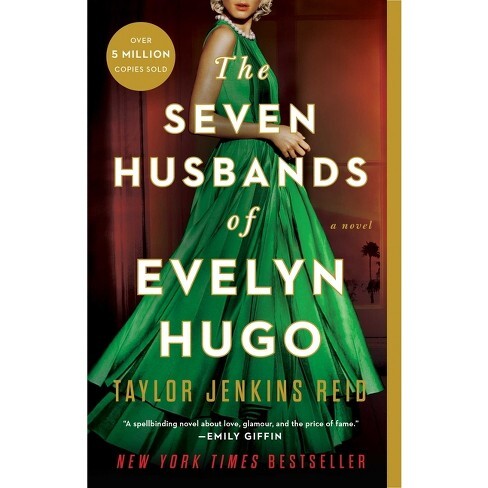
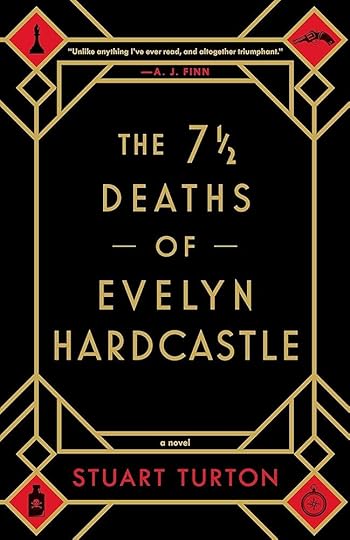
That’s all, really. I just thought I would mention it.
Okay, I just found something else out. Here are the original (pre-US-release) titles:

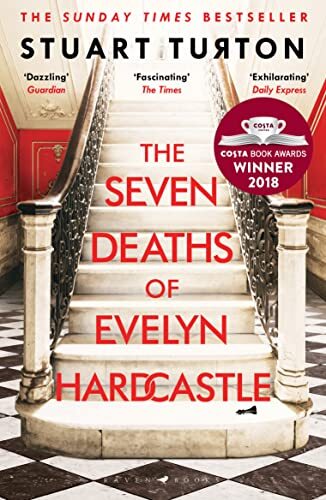
Both popular. Published in 2017 and 2018. It’s a coincidence, they say. Or is it a glitch in the matrix?
July 10, 2024
The Artist Recommends: What to Read in July
Well, well, well… I have been out of town. On and off for a few weeks. So I missed my post for what to read in July, skipped right over the Fourth of July altogether. But I am still going to give it to you and maybe you can use it next year. Actually, I just posted a brand-new list of Best Books to read for Independence Day. But some of it is going to weave its way into the July 2024 reading recommendations, for better or worse.

Here are some Fourth of July-y reads that I have read in the past and would recommend any time of the year, though poolside with a rocket popsicle and a sparkler might work best.

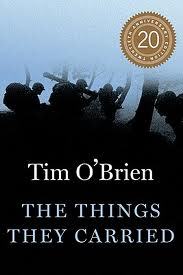
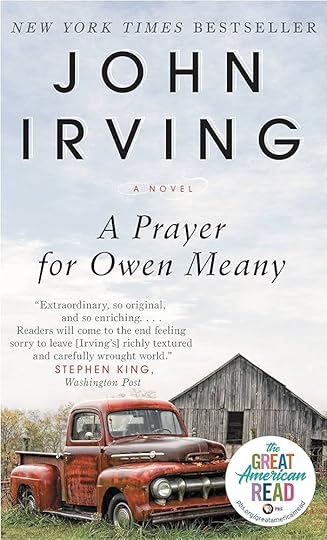

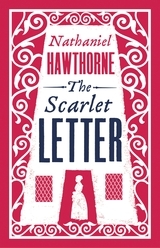

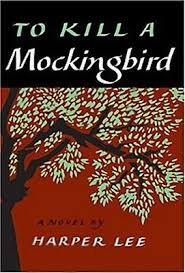
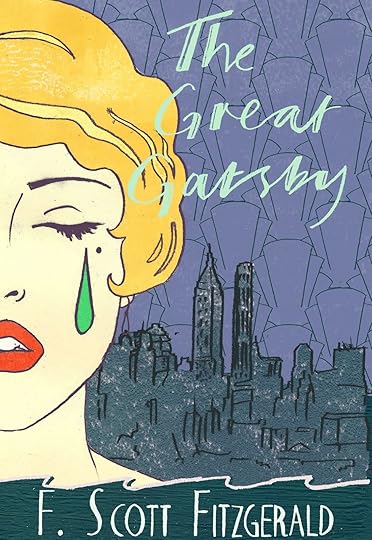
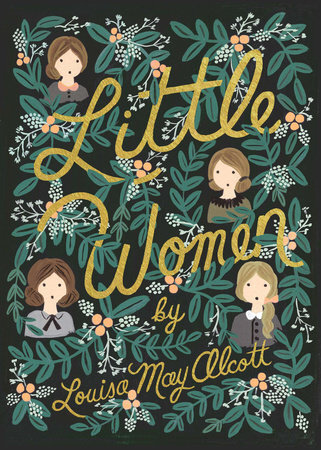
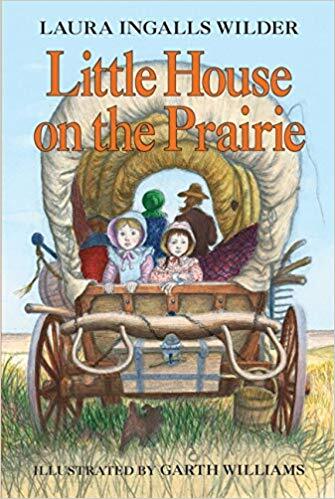
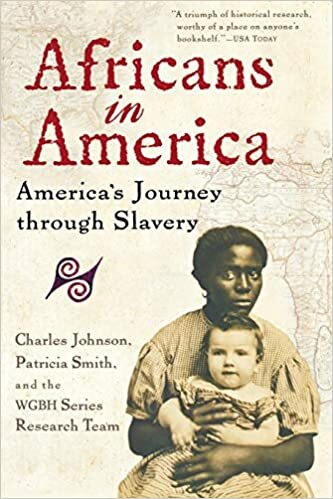
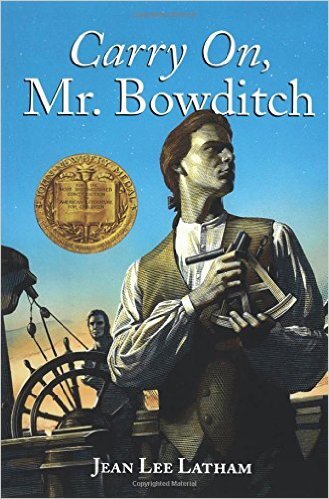




 Lincoln in the Bardo
, George Saunders ***The Things They Carried, Tim O’Brien ***A Prayer for Owen Meany, John Irving **
Fever 1793
, Laurie Halse AndersonThe Scarlet Letter, Nathaniel Hawthorne ***
The Underground Railroad
, Colson Whitehead
To Kill a Mockingbird
, Harper Lee ***
The Great Gatsby
, F. Scott Fitzgerald **
Little Women
, Louisa May Alcott **
Little House on the Prairie,
Laura Ingalls Wilder *Africans in America, Johnson, Smith and WGBH Research Team ***
Carry On, Mr. Bowditch
, Jean Lee Latham ***
Inside Out & Back Again
, Thanhha Lai *
One Crazy Summer
, Rita Williams-Garcia *
Roll of Thunder, Hear My Cry
, Mildred D. Taylor *
Sign of the Beaver
, Elizabeth George Speare ***
Lyddie
, Katherine Paterson *
Lincoln in the Bardo
, George Saunders ***The Things They Carried, Tim O’Brien ***A Prayer for Owen Meany, John Irving **
Fever 1793
, Laurie Halse AndersonThe Scarlet Letter, Nathaniel Hawthorne ***
The Underground Railroad
, Colson Whitehead
To Kill a Mockingbird
, Harper Lee ***
The Great Gatsby
, F. Scott Fitzgerald **
Little Women
, Louisa May Alcott **
Little House on the Prairie,
Laura Ingalls Wilder *Africans in America, Johnson, Smith and WGBH Research Team ***
Carry On, Mr. Bowditch
, Jean Lee Latham ***
Inside Out & Back Again
, Thanhha Lai *
One Crazy Summer
, Rita Williams-Garcia *
Roll of Thunder, Hear My Cry
, Mildred D. Taylor *
Sign of the Beaver
, Elizabeth George Speare ***
Lyddie
, Katherine Paterson *

Here are some pretty random U.S.A. history (mostly fiction) reads that I would like to one day read, myself:


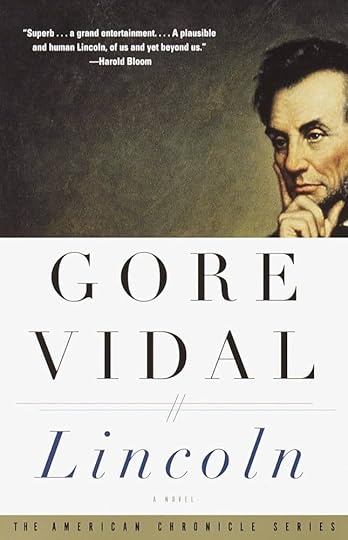
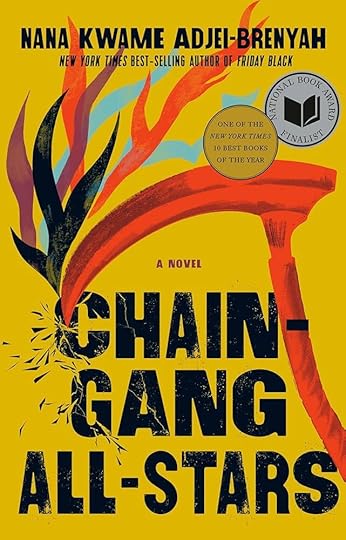

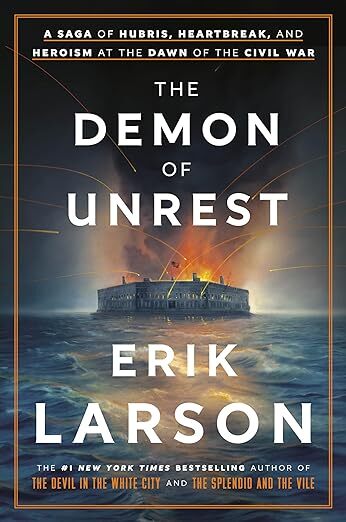
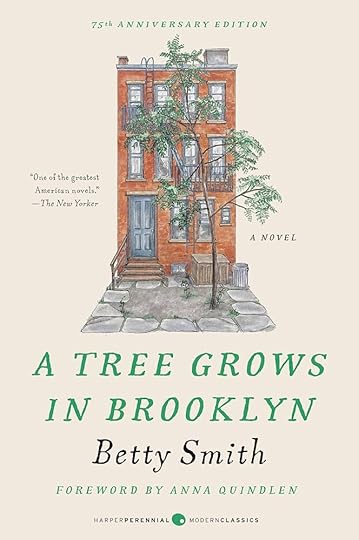





 Johnny Tremain, Esther ForbesKillers of the Flower Moon, David GrannLincoln, Gore VidalChains, Laurie Halse AndersonNight Watch, Jayne Anne PhilipsThe Demon of Unrest, Erik LarsonA Tree Grows in Brooklyn, Betty SmithThe Alienist, Caleb CarrThe Amazing Adventures of Kavalier and Clay, Michael ChabonBefore We Were Yours, Lisa WingateThe Lacuna, Barbara KingsolverThe Women, Kristin HannahThe Secret Life of Bees, Sue Monk Kidd
Johnny Tremain, Esther ForbesKillers of the Flower Moon, David GrannLincoln, Gore VidalChains, Laurie Halse AndersonNight Watch, Jayne Anne PhilipsThe Demon of Unrest, Erik LarsonA Tree Grows in Brooklyn, Betty SmithThe Alienist, Caleb CarrThe Amazing Adventures of Kavalier and Clay, Michael ChabonBefore We Were Yours, Lisa WingateThe Lacuna, Barbara KingsolverThe Women, Kristin HannahThe Secret Life of Bees, Sue Monk KiddSo far this year there have been some big-time award-winners announced. There are still more announcements coming in the summer and fall. Here’s an update:

The 2024 winner of the International Booker Prize was Jenny Erpenbeck’s Kairos, a German book that I happen to be reading for a book club right now. I quickly tired of both adultery and young woman-older man stories this year, so I am not totally enjoying this book. There is something great about the writing (in translation), but it is also one of those literary, almost-plotless books. If you like that sort of thing. (The (non-International) Booker Prize will be announced later this year.)
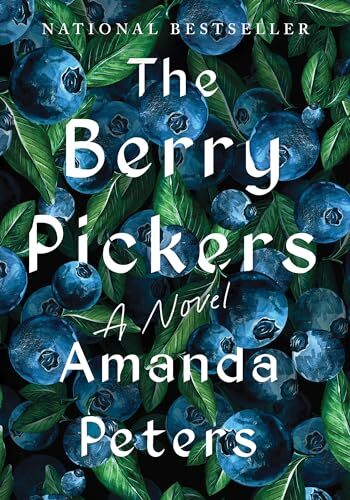
The 2024 winner of the Andrew Carnegie Medal of Excellence for fiction is Amanda Peter’s The Berry Pickers. I have seen this around lately. It’s a mystery involving a missing child (which is also a hard sell for me) and it takes place in Maine—which seems to be the American place right now, well, that and Baltimore. It also involves Native peoples, which is much more interesting to me (and tends not to make me super sad and anxious like missing children’s stories).

The 2024 winner of the Pulitzer Prize for fiction in Jayne Anne Phillip’s Night Watch. People are freaking out about this book. I see it everywhere and have heard it mentioned a number of times in the past month or so. I will for sure put it on next year’s reading list, if I haven’t gotten around to it by then by way of book club or peer pressure. I also included it on the Independence Day reads list because it is American historical fiction, taking place during (or post-?) Civil War in West Virginia.
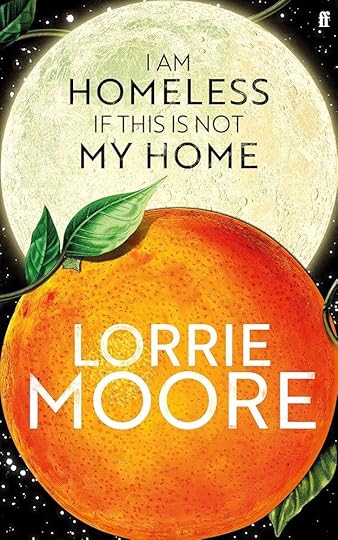
The winner of the National Book Critics Circle Award for fiction is Lorrie Moore’s I Am Homeless If This Is Not My Home. I haven’t heard of it and, unfortunately, it is not doing well with reader’s reviews. It is something of a ghost story and it sounds like it’s spread out all over time and even storyline. I dunno’. If you do, let me know.
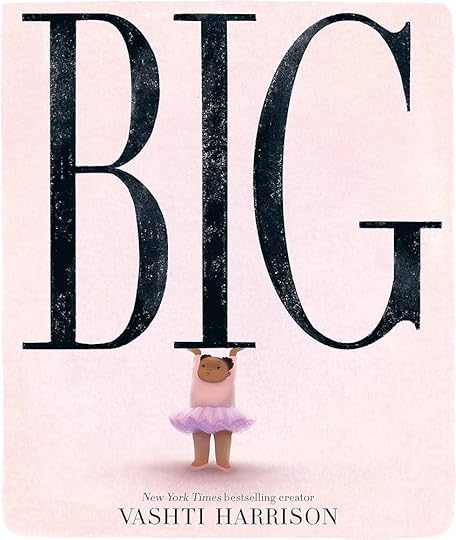
The winner of the 2024 Caldecott Medal is Vashti Harrison’s Big.
The 2024 winner of the Newbery Medal is Dave Egger’s The Eyes and the Impossible, a book I had actually come across and thought looked not that great. I stand corrected, Newbery judges.
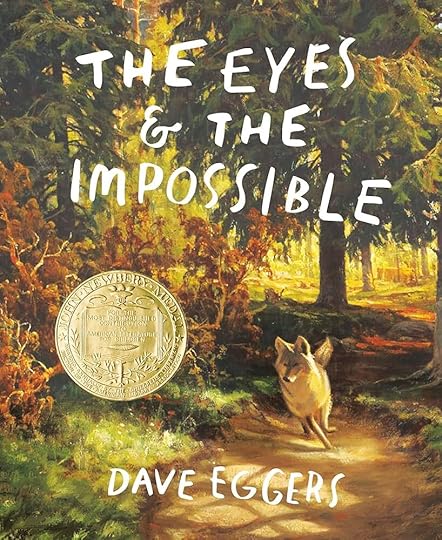
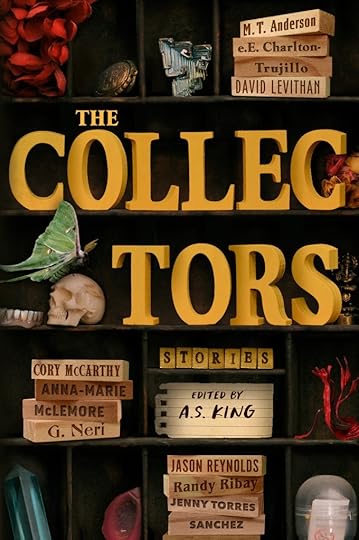
The 2024 winner of the Printz Award is A. S. King’s The Collectors. Now this is pretty intriguing. A Printz Award-winning author gave prompts to best-selling novelists and then collected their stories into this book? And then it won the Printz? It is, however, not faring well with reader reviews, same as I Am Homeless.
There are also a few other books that have seeped onto my radar during the past month:



 Rez Ball, Byron GravesWorld Travel: An Irreverent Guide, Bourdain and WooleverThe Iliad, translated by Emily Watson, HomerEveryone in My Family Has Killed Someone, Benjamin Stevenson
Rez Ball, Byron GravesWorld Travel: An Irreverent Guide, Bourdain and WooleverThe Iliad, translated by Emily Watson, HomerEveryone in My Family Has Killed Someone, Benjamin StevensonAnd a few book-related games:

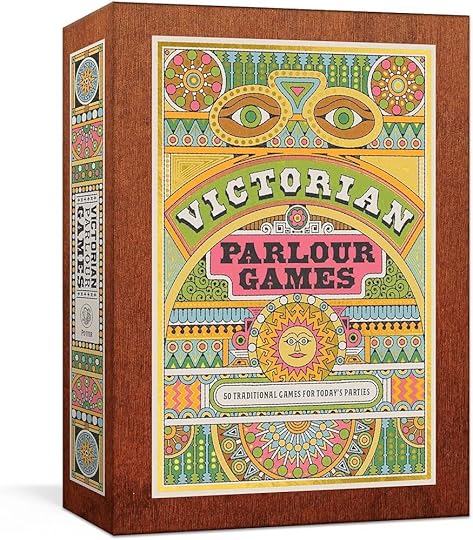
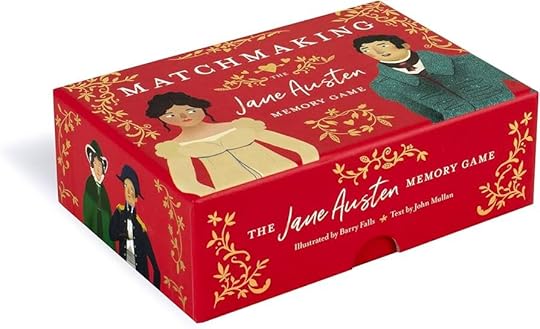 Great Shakespearean Deaths Card GameVictorian Parlor GamesMatchmaking: The Jane Austen Memory Game
Great Shakespearean Deaths Card GameVictorian Parlor GamesMatchmaking: The Jane Austen Memory GameAnd here are the books that everyone is waiting to be published in July, or so they tell me:

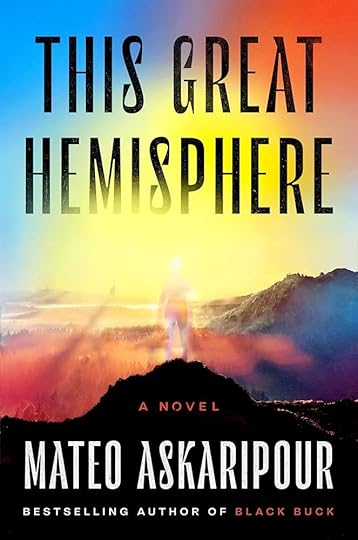

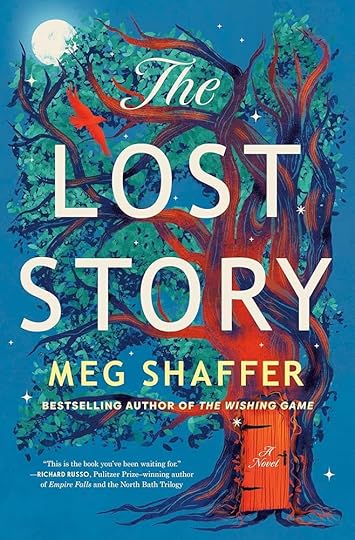
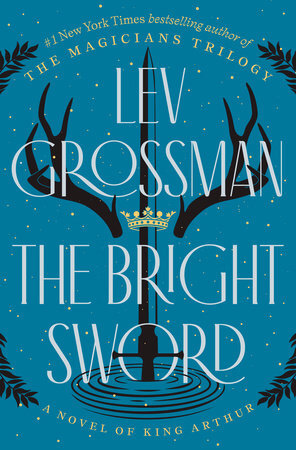


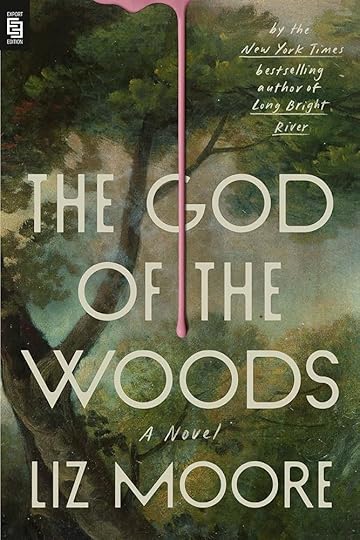
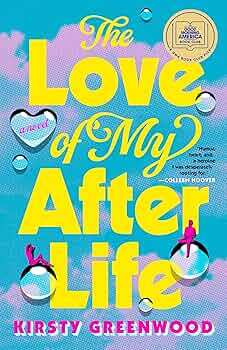
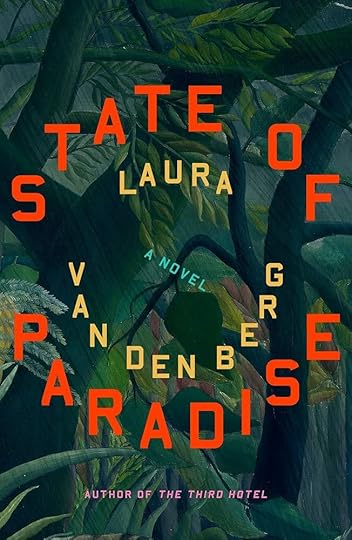
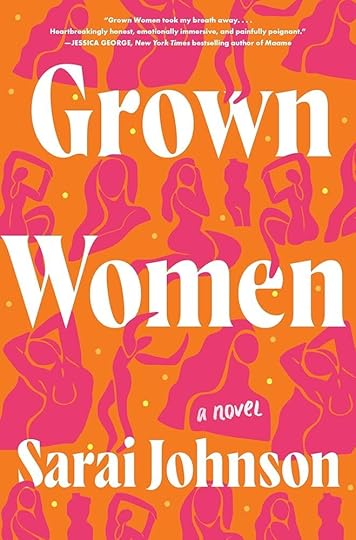
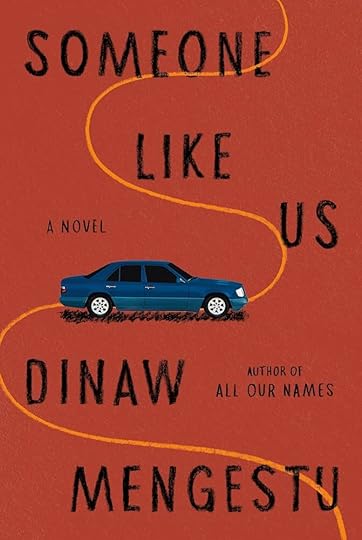 Grandest Game, Jennifer Lynn BarnesThis Great Hemisphere, Mateo AskaripourThe Briar Club, Kate QuinnThe Lost Story, Meg ShafferThe Bright Sword, Lev GrossmanSlow Dance, Rainbow RowellI Was a Teenage Slasher, Stephen Graham JonesThe God of the Woods, Liz MooreThe Love of My Afterlife, Kirsty GreenwoodState of Paradise, Laura Van Den BergGrown Women, Sarai JohnsonSomeone Like Us, Diwan Mengestu
Grandest Game, Jennifer Lynn BarnesThis Great Hemisphere, Mateo AskaripourThe Briar Club, Kate QuinnThe Lost Story, Meg ShafferThe Bright Sword, Lev GrossmanSlow Dance, Rainbow RowellI Was a Teenage Slasher, Stephen Graham JonesThe God of the Woods, Liz MooreThe Love of My Afterlife, Kirsty GreenwoodState of Paradise, Laura Van Den BergGrown Women, Sarai JohnsonSomeone Like Us, Diwan MengestuAnd while gathering those titles, I thought we’d take a mid-year look back at the books that are floating to the top of the “best books of 2024” pool. I didn’t include ones that I had already mentioned in previous posts. (It looks like the romances are taking the cake.) We’ll do a full recap in December.
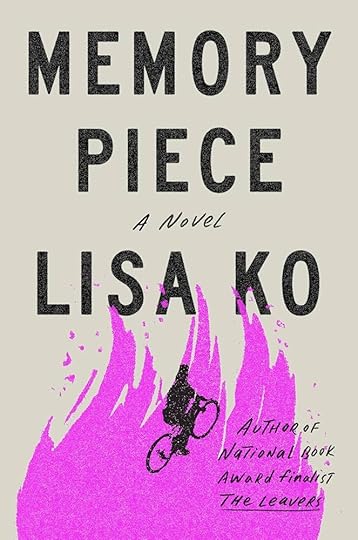
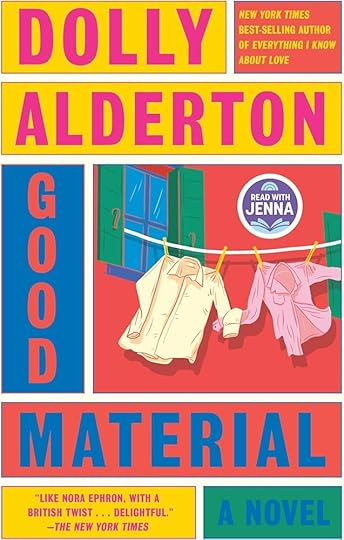
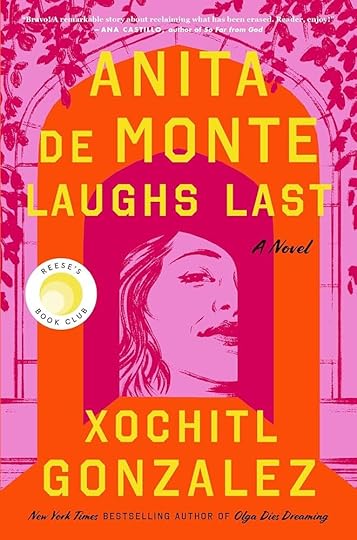

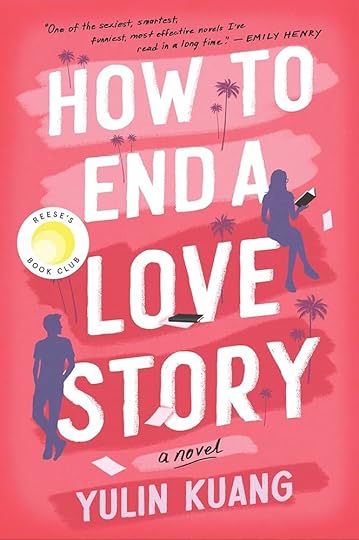







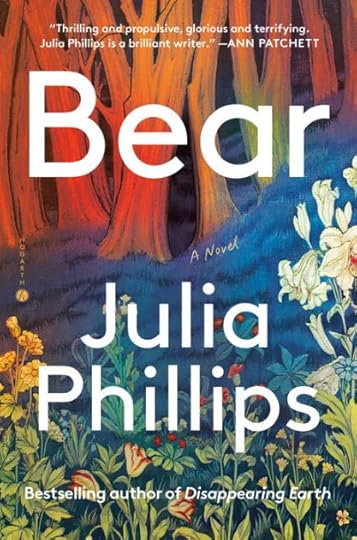


 Memory Piece, Lisa KoGood Material, Dolly AldertonAnita de Monte Laughs Last, Xochitl GonzalezThe Fetishist, Katherine MinHow to End a Love Story, Yulin KuangThe Paradise Problem, Christina LaurenI Hope This Finds You Well, Natalie SueThis Summer Will Be Different, Carley FortuneSummer Romance, Annabel MonaghanThe Bulgarian Training Manual, Ruth BonapaceMoonbound, Robin SloanMargo’s Got Money Troubles, Rufi ThorpeBear, Julia PhillipsA Novel Love Story, Ashely PostonEmily Wilde’s Map of the Otherlands, Heather Fawcett (#2 in a series)The Reappearance of Rachel Price, Holly Jackson;
Memory Piece, Lisa KoGood Material, Dolly AldertonAnita de Monte Laughs Last, Xochitl GonzalezThe Fetishist, Katherine MinHow to End a Love Story, Yulin KuangThe Paradise Problem, Christina LaurenI Hope This Finds You Well, Natalie SueThis Summer Will Be Different, Carley FortuneSummer Romance, Annabel MonaghanThe Bulgarian Training Manual, Ruth BonapaceMoonbound, Robin SloanMargo’s Got Money Troubles, Rufi ThorpeBear, Julia PhillipsA Novel Love Story, Ashely PostonEmily Wilde’s Map of the Otherlands, Heather Fawcett (#2 in a series)The Reappearance of Rachel Price, Holly Jackson;

The books I will be reading (or just read) for book clubs are:


 One of Us Is Lying, Karen M. McManus (Already read it and giving it four stars. Solid.)Midnight’s Children, Salman Rushdie (Reading it right now; it’s amazing but so frickin’ dense—it’s gonna take me forever.)Daughter of the Moon Goddess, Sue Lynn Tan (What a pretty cover!)and one book club watches a book-related movie every July, this year’s being All of Us Strangers
One of Us Is Lying, Karen M. McManus (Already read it and giving it four stars. Solid.)Midnight’s Children, Salman Rushdie (Reading it right now; it’s amazing but so frickin’ dense—it’s gonna take me forever.)Daughter of the Moon Goddess, Sue Lynn Tan (What a pretty cover!)and one book club watches a book-related movie every July, this year’s being All of Us Strangers

I had a good reading month in June, spilling over so far into July. Here are the books I loved in June. You’ll have reviews of each of them, soon:
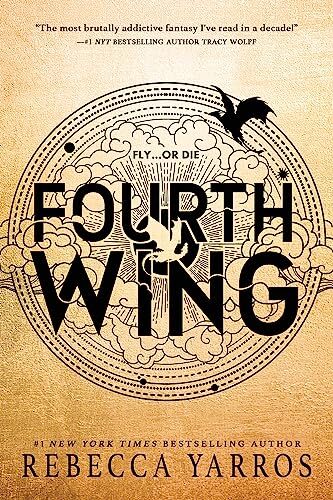

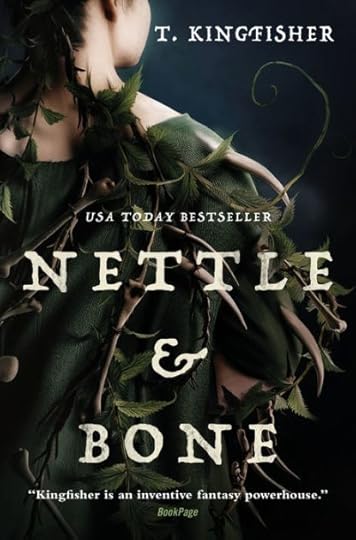
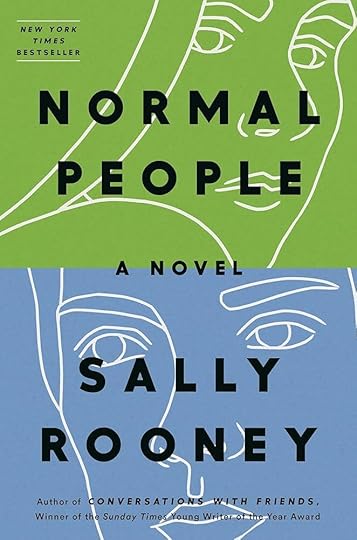
 Fourth Wing (Empyrean Cycle #1), Rebecca YarrosUniversal Love, Alexander WeinsteinNettle & Bone, T. KingfisherNormal People, Sally RooneyOne of Us Is Lying, Karen M. McManus
Fourth Wing (Empyrean Cycle #1), Rebecca YarrosUniversal Love, Alexander WeinsteinNettle & Bone, T. KingfisherNormal People, Sally RooneyOne of Us Is Lying, Karen M. McManus

For “the usual” seasonal recommendations—summer reads related to the Fourth of July, see the blog post I just posted.
July 9, 2024
Best Books Lists: Independence Day
I consider the Fourth of July as a second-tier holiday, as far as the depth and breadth of the festivities go for me. For the past few years I have been in Syracuse, NY with my husband’s sisters and parents and their families, donning starred and striped socks and painting the bursted-bomb air with sparklers, eating barbecue from a food truck. (Perhaps the last of that was more specific to this year.) Anyhow, though I like to read holiday reads at appropriate times throughout the calendar year for New Years, Valentines, Easter, Halloween, Thanksgiving, and Christmas (a couple of those also second-tier holidays), I have never considered reading a book for the Fourth. Well, in passing through St. Patty’s Day this year, I made a list of books for that one—so certainly a list for Independence Day makes sense.
Why not add some USA historical fiction—or even an actual history book—to your summer reading list? And recline out on your blanket with the crowds milling around, waiting for fireworks with a book that has something to do with the history of the good ol’ (qualified, of course) US of A?
As always, I compiled these lists largely from other best-ofs lists that I found online. I have not read the vast majority of these—they are lists for my TBR as well. I can’t say if they are any good (yet), but someone out there thinks they are and that they have something to do with American History (another thing I cannot vouch for, yet). (Books specifically limited to the Fourth of July as a topic/setting were really, really thin on the ground, though there are some options for the Revolutionary War and the Declaration of Independence.)
The list starts out a little more serious, like with more history, then gets really novelly:


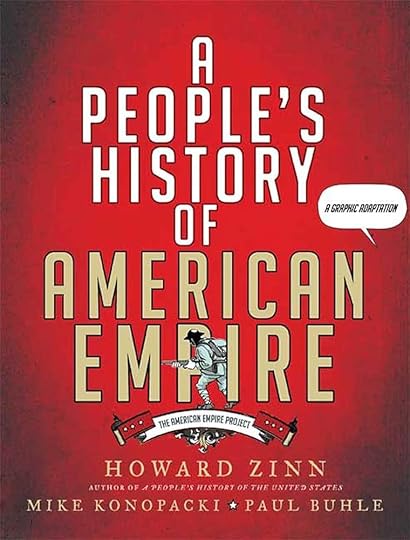
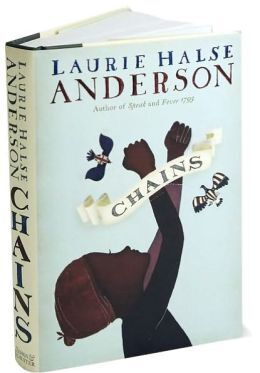




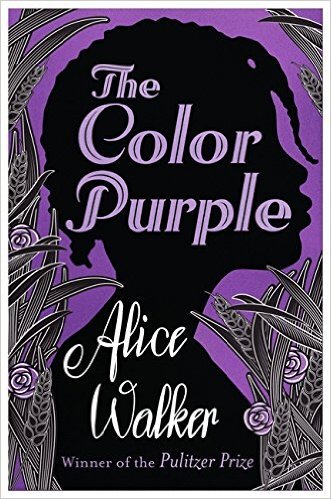
 Washington, A Life, Ron Chernow1776, David McCulloughJohnny Tremain, Esther ForbesThe Hemingses of Monticello, Annette Gordon-ReedFounding Brothers, Joseph J. EllisRedcoat, Bernard CornwellMy Brother Sam Is Dead, James Lincoln and Christopher CollierRise to Rebellion, Jeff ShaaraThe Presidents and the People, Corey BrettshniederAn African American and Latinx History of the United States, Paul OrtizAs We Have Always Done, Leanne Betasamosake SimpsonMedicine Stories, Aurora Levins MoralesA People’s History of American Empire, Howard ZinnHow to Hide an Empire, Daniel ImmerwahrThe Radicalism of the American Revolution, Gordon S. WoodThe Words that Made Us, Akhil Reed AmarCommon Sense, the Rights of Man and Other Essential Writings, Thomas PaineKillers of the Flower Moon, David GrannLincoln, Gore VidalChains, Laurie Halse AndersonNight Watch, Jayne Anne PhilipsThe Demon of Unrest, Erik LarsonThe Extraordinary Life of Sam Hell, Robert DugoniThey Can’t Kill Us Until They Kill Us, Hanif AbdurraqibThe Great Alone, Kristin HannahLincoln in the Bardo, George Saunders ***The Things They Carried, Tim O’Brien ***A Prayer for Owen Meany, John Irving **Ahab’s Wife, Sena Jeter NaslundLove and Other Consolation Prizes, Jamie FordThe Color Purple, Alice WalkerThe Crucible, Arthur MillerDance with Wolves, Michael BlakeDaughter of Fortune, Isabel AllendeThe Devil in the White City, Erik LarsonFools Crown, James WelchThe Tea Girl of Hummingbird Lane, Lisa SeeThe Saints of Swallow Hill, Donna EverhartThe Personal Librarian, Benedict and MurrayThe Four Winds, Kristin HannahFour Treasures of the Sky, Jenny Tingui ZhangBooth, Karen Joy FowlerBetty, Tiffany McDanielYellow Wide, Sadeqa JohnsonTake My Hand, Dolen Perkins-ValdezA Tree Grows in Brooklyn, Betty SmithThe Alienist, Caleb CarrThe Amazing Adventures of Kavalier and Clay, Michael ChabonAngle of Repose, Wallace StagnerCity of Dreams, Beverly SwerlingCold Mountain, Charles FrasierCold Sassy Tree, Olive Ann BurnsFried Green Tomatoes at the Whistle Stop Café, Fannie FlaggThe Golem and the Jinni, Helene WeckerGone with the Wind, Margaret Mitchell *Wandering Stars, Tommy OrangeThe Good Lord Bird, James McBrideGrace, Natashia DeonHawaii, James A. MichenerHomegoing, Yaa GyasiThe Joy Luck Club, Amy Tan *The Killer Angels, Michael ShaaraKindred, Octavia ButlerThe Kitchen House, Kathleen GrissomThe Moor’s Account, Laila LalamiThe Museum of Extraordinary Things, Alice HoffmanMy Antonia, Willa CatherFever 1793, Laurie Halse AndersonThe Scarlet Letter, Nathaniel Hawthorne ***The Underground Railroad, Colson WhiteheadMy Name Is Resolute, Nancy E. TurnerNew York, Edward RutherfurdNorth and South, John Jakes; Orphan Train, Christina Baker KlineRagtime, E. L. DoctorowBefore We Were Yours, Lisa WingateBeloved, Toni Morrison **Blood Meridian, Cormac McCarthyCaleb’s Crossing, Geraldine BrooksCane River, Lalita TademyThe Cider House Rules, John IrvingRiders of the Purple Sage, Zane GreyRoots, Alex HaleyRules of Civility, Amor TowlesSnow Falling on Cedars, David GutersonThe Son, Philipp MeyerStoner, John WilliamsWater for Elephants, Sara GruenWhen the Emperor Was Divine, Julie OtsukaThe Witch of Blackbird Pond, Elizabeth George SpeareUnder the Blood-Red Sun, Graham SalisburyInfamy, Richard ReevesThe Help, Kathryn Stockett *Where the Lost Wander, Amy HarmonThe Giver of Stars, Jojo MoyesThe Book Woman of Troublesome Creek, Kim Michele RichardsonThe Indigo Girl, Natasha BoydThe Invention of Wings, Sue Monk KiddThe Women, Kristin HannahThe Secret Life of Bees, Sue Monk Kidd
To Kill a Mockingbird
, Harper Lee ***The Great Gatsby, F. Scott Fitzgerald **Little Women, Louisa May Alcott **Little House on the Prairie, Laura Ingalls Wilder *These Is My Words, Sarah Agnes PrineThe Personal Librarian, Marie BenedictNews of the World, Paulette JilesChristy, Catherine Marshall11/22/63, Stephen KingA Girl Called Samson, Amy HarmonThe Seven Husbands of Evelyn Hugo, Taylor Jenkins ReidThe Known World, Edward P. JonesThe Lacuna, Barbara KingsolverThe Last Days of Night, Graham MooreThe Living, Annie DillardLonesome Dove, Larry McMurtryThe Master Butchers Singing Club, Louise ErdrichBury My Heart at Wounded Knee, Dee Brown
Carry On, Mr. Bowditch
, Jean Lee Latham ***
Inside Out & Back Again
, Thanhha Lai *
One Crazy Summer
, Rita Williams-Garcia *
Roll of Thunder, Hear My Cry
, Mildred D. Taylor *
Sign of the Beaver
, Elizabeth George Speare ***
Lyddie
, Katherine Paterson *
Africans in America
, Johnson, Smith, and WGBH Research Team ***
Washington, A Life, Ron Chernow1776, David McCulloughJohnny Tremain, Esther ForbesThe Hemingses of Monticello, Annette Gordon-ReedFounding Brothers, Joseph J. EllisRedcoat, Bernard CornwellMy Brother Sam Is Dead, James Lincoln and Christopher CollierRise to Rebellion, Jeff ShaaraThe Presidents and the People, Corey BrettshniederAn African American and Latinx History of the United States, Paul OrtizAs We Have Always Done, Leanne Betasamosake SimpsonMedicine Stories, Aurora Levins MoralesA People’s History of American Empire, Howard ZinnHow to Hide an Empire, Daniel ImmerwahrThe Radicalism of the American Revolution, Gordon S. WoodThe Words that Made Us, Akhil Reed AmarCommon Sense, the Rights of Man and Other Essential Writings, Thomas PaineKillers of the Flower Moon, David GrannLincoln, Gore VidalChains, Laurie Halse AndersonNight Watch, Jayne Anne PhilipsThe Demon of Unrest, Erik LarsonThe Extraordinary Life of Sam Hell, Robert DugoniThey Can’t Kill Us Until They Kill Us, Hanif AbdurraqibThe Great Alone, Kristin HannahLincoln in the Bardo, George Saunders ***The Things They Carried, Tim O’Brien ***A Prayer for Owen Meany, John Irving **Ahab’s Wife, Sena Jeter NaslundLove and Other Consolation Prizes, Jamie FordThe Color Purple, Alice WalkerThe Crucible, Arthur MillerDance with Wolves, Michael BlakeDaughter of Fortune, Isabel AllendeThe Devil in the White City, Erik LarsonFools Crown, James WelchThe Tea Girl of Hummingbird Lane, Lisa SeeThe Saints of Swallow Hill, Donna EverhartThe Personal Librarian, Benedict and MurrayThe Four Winds, Kristin HannahFour Treasures of the Sky, Jenny Tingui ZhangBooth, Karen Joy FowlerBetty, Tiffany McDanielYellow Wide, Sadeqa JohnsonTake My Hand, Dolen Perkins-ValdezA Tree Grows in Brooklyn, Betty SmithThe Alienist, Caleb CarrThe Amazing Adventures of Kavalier and Clay, Michael ChabonAngle of Repose, Wallace StagnerCity of Dreams, Beverly SwerlingCold Mountain, Charles FrasierCold Sassy Tree, Olive Ann BurnsFried Green Tomatoes at the Whistle Stop Café, Fannie FlaggThe Golem and the Jinni, Helene WeckerGone with the Wind, Margaret Mitchell *Wandering Stars, Tommy OrangeThe Good Lord Bird, James McBrideGrace, Natashia DeonHawaii, James A. MichenerHomegoing, Yaa GyasiThe Joy Luck Club, Amy Tan *The Killer Angels, Michael ShaaraKindred, Octavia ButlerThe Kitchen House, Kathleen GrissomThe Moor’s Account, Laila LalamiThe Museum of Extraordinary Things, Alice HoffmanMy Antonia, Willa CatherFever 1793, Laurie Halse AndersonThe Scarlet Letter, Nathaniel Hawthorne ***The Underground Railroad, Colson WhiteheadMy Name Is Resolute, Nancy E. TurnerNew York, Edward RutherfurdNorth and South, John Jakes; Orphan Train, Christina Baker KlineRagtime, E. L. DoctorowBefore We Were Yours, Lisa WingateBeloved, Toni Morrison **Blood Meridian, Cormac McCarthyCaleb’s Crossing, Geraldine BrooksCane River, Lalita TademyThe Cider House Rules, John IrvingRiders of the Purple Sage, Zane GreyRoots, Alex HaleyRules of Civility, Amor TowlesSnow Falling on Cedars, David GutersonThe Son, Philipp MeyerStoner, John WilliamsWater for Elephants, Sara GruenWhen the Emperor Was Divine, Julie OtsukaThe Witch of Blackbird Pond, Elizabeth George SpeareUnder the Blood-Red Sun, Graham SalisburyInfamy, Richard ReevesThe Help, Kathryn Stockett *Where the Lost Wander, Amy HarmonThe Giver of Stars, Jojo MoyesThe Book Woman of Troublesome Creek, Kim Michele RichardsonThe Indigo Girl, Natasha BoydThe Invention of Wings, Sue Monk KiddThe Women, Kristin HannahThe Secret Life of Bees, Sue Monk Kidd
To Kill a Mockingbird
, Harper Lee ***The Great Gatsby, F. Scott Fitzgerald **Little Women, Louisa May Alcott **Little House on the Prairie, Laura Ingalls Wilder *These Is My Words, Sarah Agnes PrineThe Personal Librarian, Marie BenedictNews of the World, Paulette JilesChristy, Catherine Marshall11/22/63, Stephen KingA Girl Called Samson, Amy HarmonThe Seven Husbands of Evelyn Hugo, Taylor Jenkins ReidThe Known World, Edward P. JonesThe Lacuna, Barbara KingsolverThe Last Days of Night, Graham MooreThe Living, Annie DillardLonesome Dove, Larry McMurtryThe Master Butchers Singing Club, Louise ErdrichBury My Heart at Wounded Knee, Dee Brown
Carry On, Mr. Bowditch
, Jean Lee Latham ***
Inside Out & Back Again
, Thanhha Lai *
One Crazy Summer
, Rita Williams-Garcia *
Roll of Thunder, Hear My Cry
, Mildred D. Taylor *
Sign of the Beaver
, Elizabeth George Speare ***
Lyddie
, Katherine Paterson *
Africans in America
, Johnson, Smith, and WGBH Research Team ***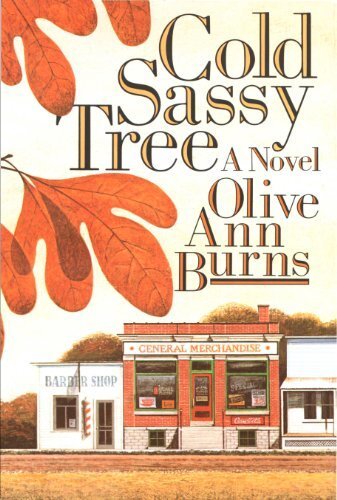



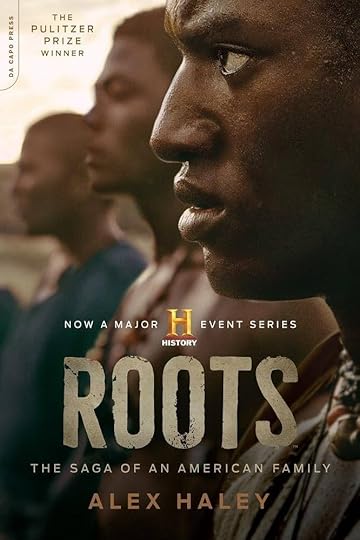





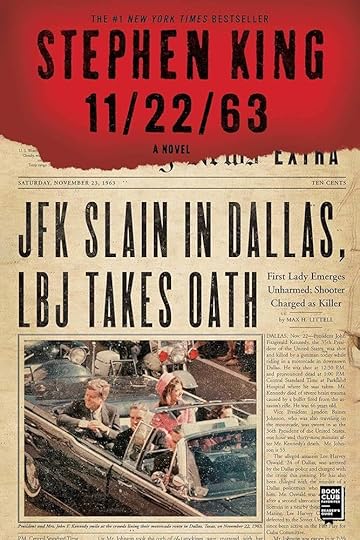

July 8, 2024
ARC Review: The States
 Image from Amazon.com
Image from Amazon.comI think The States by Norah Woodsey is a good idea: a very light sci-fi approach to Jane Austen’s Persuasion featuring lucid dreaming, Ireland, and a filthy rich Manhattan family. Great. (I mean, I could do without the New York City or rich people bits, but for this they work as the Elliots.) The plot and the characters are getting there, they just aren’t quite. Yet. In other words, this book has promise but unfortunately did what lots of self-published endeavors do (probably including my own) and passed go before the book was thoroughly edited and tightened up. (Well, really, even plenty of traditionally-published books do this, but it a different-feeling way.) Some readers won’t mind this and will have a fun time going with Tildy on her adventures. I enjoyed the book but couldn’t ignore that it could have been better with more time and revisions.
Tildy Sullivan, middle child, left Ireland, her grandmother, and first love on the advice of her insufferable family (and their virtual assistant) for the high life in New York City. When given the chance to participate in a sleep study, Tildy sees a chance to live a second life back in Ireland through lucid dreams. But as she forms more dream-relationships, she starts to confuse reality and desire. The people she is growing attached to are only in her head, but if she keeps slipping away into her dreams, she’s been warned that something could go terribly wrong. And will she have to leave Ireland all over again?
I was approached and given an ARC of this book with the expectation of an unbiased review. It took me quite awhile to get to it (which I did warn), so it was published a couple months ago.
So, yeah. The book is a retelling of Persuasion, but you would not have to be familiar with it at all in order to understand the story. On the other hand, there are tidbits that you would miss if you weren’t more than just familiar with the story. I think that reading The States would be most enjoyable if one was a fan of the original. That way Austen’s work would combine with Woodsey’s and make more sense from some of the choices (like why Tildy would stay with her family in New York over just returning to her grandma).
It’s a romance novel, but we’re calling it science fiction. I mean, sure, it technically is. But the sci-fi of it are really light. Basically, we’re in a foreseeable world where one can induce lucid dreams and have a sort of relationships with AI. So almost reality. The main story is the romance, even if it is largely in Tildy’s head. Unfortunately, there are lots of romance fans who would balk at the addition of “science fiction” to their reading list; I would just glaze over the sci-fi in this case. However, if someone is really into science fiction, this is probably not going to scratch that particular itch.
I did enjoy reading this book. I was happy with the premise and I was interested the whole way through. I wanted to know what was going to happen to Tildy and I enjoyed some of the side-characters in a way I would the characters in a rom-com. Unfortunately, I agree with another reviewer that the book has potential, but it’s “just not there yet.”
Let me be more specific, though not exhaustive.
The book needs more flashbacks, more understanding of family dynamics. The main (real) friend relationship really needs to be built up. The flashbacks or backstory would also help with developing Aidan, and I don’t mean the dream Aidan. We need to find out who he really is so that we actually want him to be the love interest Tildy ends up with. (I’m not saying she does—no spoilers—just that he’s the one we’re supposed to root for.) Even Jude, the other love interest, needs a lot more development; as it is now, it doesn’t make sense that he would even tempt Tildy away from Ireland, etc. Also, Tildy has some issues as a character, on her own. Her staying with her family instead of going back to Ireland lacks real weight, real motivation. As for the rest of the characters, I’m wondering if Woodsey went one-for-one with Persuasion; the problem is, there are too many Ireland friends to make sense for this book, and they get really confusing. Really confusing. Lastly, there are moments at the end of the book that didn’t have proper build-up, or as an author I chatted with last week would put it, there aren’t sufficient breadcrumbs to lead us to the climax, let alone develop the subplots and relationships.
One other bummer: Woodsey uses Gaelic (I think it’s Gaelic. I don’t speak it) without translation, like a lot. Like long sentences. And then never gives us clues (some of the time, at least) as to what was just said. Or a footnote with translation. Anything? Nothing. Perhaps it’s a poke at how Victorian literature often included the tres chic French language without translation, though when I encounter that in classics I am equally as exasperated. These days, why aren’t modern publications of these books adding translation notes? For real.
The States is a self-published book, and one that I would recommend to someone who reads romance and would be interested in a teeny tiny bit of sci-fi… but not someone with high literary standards (for everything they read, anyway). There are some self-pub issues here, including a need for further development and edits as well as a better title (I don’t think I get it) and more representative cover (which tells us zero about the story). The idea is intriguing and there are some real promising seeds of characters and plot, but it could have been all-the-way-baked with more time and more insight.
Note: There are some quotes from the book that I marked, but because it’s an ARC, I can not post them here. The thing is, they might change between my copy and yours.
June 18, 2024
Book Review: Empty Theatre

At the start of Empty Theatre by Jac Jemc, you are given the fuzzy demise of two royal cousins in the very late 1800s. Then you quickly pull way back and, over several chapters, both the main characters are born and placed in their shared world of wealth, power, rules, restrictions, expectations, intermarriage, prestige, excess, intrigue, and any number of crazy relatives. The common people? They’re there somewhere in the background. I mean, princesses and empresses aren’t actually allowed to interact with anyone much or to leave the palace or anything. Still, this fictional retelling of history is a whole lotta intrigue without being very intriguing, at least for long bits. The book is just too lengthy and it recounts so many scenes in chronological order without making sense of the plot or story for us. Still, I was often taken by the writing style, the language, the characters, maybe even the playful, chaotic tone. I wanted to love it and sometimes I did. Sometimes I had a hard time picking it back up. Overall I enjoyed it.
The entire title of Jac Jemc’s Empty Theatre is actually Empty Theatre, or The Lives of King Ludwig II of Bavaria and Empress Sisi of Austria (Queen of Hungary), Cousins, in Their Pursuit of Connection and Beauty Despite the Expectations Placed on Them Because of the Exceptional Good Fortune of Their Status as Beloved National Figures, with Speculation into the Mysterious Nature of Their Deaths. That’s pretty much the synopsis for you; I don’t have any work to do here.
I read this book for one of my book clubs—the fanciest one. I had never heard of it or remembered seeing it before but it sounded amazing. And that cover? And I enjoy great historical fiction.
Present tense is not really my thing, which we have established over and over. That doesn’t mean I don’t love a book occasionally that uses present tense. However, I feel like an author has to justify present tense, and I don’t see how Empty Theatre needed it. Or even why it was chosen, artistically. Historical fiction begs for the past tense, and I felt whiplashed almost every time I put the book down and then picked it back up. My mind kept expecting past tense, no matter how many times I was dropped back into present tense. And I did put the book down many, many times. I began enthusiastically enough, but the story went on for a really long time (okay, too long) and was true to the history in a way that meant there was no real plot (until suddenly there was at the end); there weren’t questions we were waiting on the answer to, not any traditional development of the story. It led me to wonder why it was made into a novel, or to reframe that, why Jemc didn’t run with the fictionalized version and give us an arc, a plot, didn’t focus in on some of the many, many scenes that are included in order to make it cohesive and, well, dramatic.
What was it, then? Empty Theatre is a fact-deluge as well as a lore- and speculation-fest, chronological, beginning of life to end (for both characters). (Because it is chronological, we don’t see Leopold for awhile–don’t be fooled by Franz or whoever–Leopold will enter the story eventually.) But this doesn’t say it all. It’s also a fun, feisty, zoomed-in account with plenty of juicy bits, plenty of meat and also great prose that sometimes is excellent prose. The fictionalization allows the reader to meet the characters up close and personal, to really plop into the scene with details and dialogue, making these very real (and now embellished) stories more accessible. More fun, surely. If you’re a stickler for facts, your options are a) skip this book or b) read it and then look up the veracity of events and claims as you read or afterward. There is so much historical fiction or based-on-true-events stuff out there, you should be used to it by now.
The point, I think, was to explore the feelings, the psychology, the lived-in experiences of a couple of these eccentric royals from the European past (not going terribly far back here; we’re in the 1860s to 1898). Jemc chose two fascinating and over-the-top royals, a pair of cousins who ruled in neighboring territories (one senior to the other) in Eastern Europe near the end of the Habsburg dynasty… and for us readers, with the World Wars looming and the tension of a limited time left for royalty as royals (and monarchies) nearly everywhere. The book explores mental illness, sexuality, gender roles, and the pressures and expectations of being born into high positions. There is also the element of marriage and the powerlessness of women, or maybe it’s more the singularity of the purpose of royal women and the limitations to do anything outside of bearing the next heir. Like Queen Charlotte and The Great. We’ve been debunking the fantasy of marrying a prince for a while now.
Though there’s a certain amount of seeing through these characters, too. Sure, we get really into Prince Ludwig and Empress Sisi, but we are also disillusioned. They’re both deeply unfortunate in some ways and they’re both spoiled brats. There are many incidents of casual cruelty, from and toward our MCs. So much. Which leads us to the possible moral of this story: monarchy is a bad idea. The King and the Empress were ill equipped and tragically uninterested in their roles. Their family history of lunacy and their lack of freewill give us sympathy toward them, but I don’t think we can completely get away from just how amazing they also had it, especially compared to the majority of their subjects.
A few notes and warnings: it gets confusing with all the characters (some of whom drop out of the story for long stretches) and I got a little resentful that there wasn’t a family tree, list of characters, and maybe even a timeline printed in the book. And a time-appropriate map! But a reference for the characters is a must, so either make that list as you read or find some sort of resource online. (I couldn’t really find the map I was looking for.) I was an enormous fan of Sisi and her home gyms. I was not as fond of the monotony that happened largely in the middle parts of the book. I wanted to see a little more clearly why Jemc might have written this book. Why this story? Why these characters in history? Some of the books that my book club familiars recommended instead of—or in addition to—Empty Theatre were HHhH by Laurent Binet, Pachinko by Min Jin Lee, and The Windup Bird Chronicle by Haruki Murakami. Also, the streaming series The Great. I have seen that one and I was frequently reminded of it while reading. The Empress by Gigi Griffis is another series that is actually about Empress Sisi and her husband and is currently on Netflix.
Here are some food suggestions, foods that are featured in the book that you could make for dinner while reading it or make for your book club or post-reading. Perhaps some will appeal to you more than others.
Liver dumpling soupRotkraut (braised red cabbage)Veal and wurst (sausage)Vanillekipferl (Austrian vanilla crescent cookies)Plum PuddingToast with Schnapps (I can’t recall… maybe she ate it for breakfast?)Hot ChocolateLastly, here are a few fun vocabulary words, because there is a lot of vocabulary happening in this book:
chypre – a family of perfumes with citrus top notescapercailzie – a large Eurasian grouse (a game bird with a plump body and feathered legs) that lives in pine forestschamois – a species of goat-antelope; also a durable and comfortable fabric used largely for high end gloves made from the animal chamois. (Then later it became a term for a flannel-like cotton cloth.)So yes, I liked reading Empty Theatre. Yes, I would recommend it for those who enjoy things like The Great and who have some tolerance for a meandering narrative or who at least will tolerate all sorts of things to get the rich-and-famous-people-of-history gossip. Or you like a study of the royals. Or are especially intrigued by the Victorian era but not necessarily in just England. It might take a second to get through it because you probably won’t be turning the pages late into the night, but it’s, well, unique. And there are some simply beautifully written passages and some riveting characters though their lives may get a bit tedious at turns.

“’Tell me, have either of you derived your greatest joys in life from doing what you’re told?’ She looks at her father” (p59).
“…but in Vienna I’d have to wear gloves every day, and I worried what it would do to me not to feel the world beneath my fingertips” (p163).
“Sisi wonders why his other palaces can’t be ‘poetic places of refuge,’ but she knows this brand of hope—that another place might hold the solution to one’s disquiet” (p242).
“That is always the way, isn’t it? Something is always dying off and something always growing unruly” (p262).
“Franzl knows that, if he were to ask Sisi what it was she wanted, she would not be able to answer. She knows only that none of these things is it” (p264).
“To know a truth is different than to speak it aloud” (p264).
“His heart chugs and halts …. He wonders if she will pick up on the code that he is locking into his words” (p311).
“’Once you have everything, you must continually dream up new things to want. And all the same, I am hounded day and night to sign papers and take meetings that don’t matter at all to me, and this is my fate until I die’” (p323).
“You are born into this life and you must find a way to tolerate it. Any option is an illusion” (p323).
“Had they been visiting regularly, the minute daily changes might have deceived them into believing they remained mostly the same” (p329).
“My body is my instrument. If the King wants to listen to a voice like mine, then he must face the form that produces such sound. This is what resonance looks like” (p330).
“Hornig has come to realize that humans override self-protection for a sense of closeness and attachment” (p346).
June 17, 2024
Quotable: If We Had a Lemon We’d Throw It and Call That the Sun
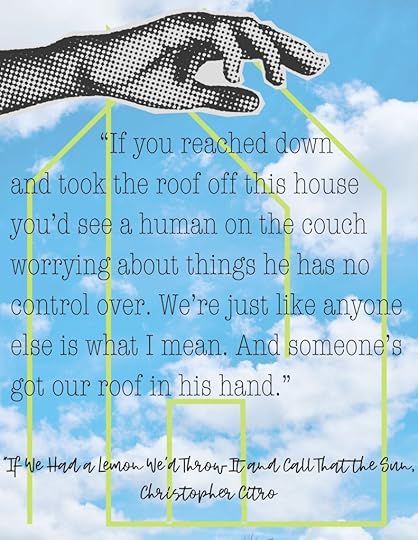
“If you reached down / and took the roof off this house / you’d see a human on the couch / worrying about things he has no / control over. We’re just like anyone / else is what I mean. And someone’s / got our roof in his hand.” -Christopher Citro
June 7, 2024
Book Review: The Lathe of Heaven
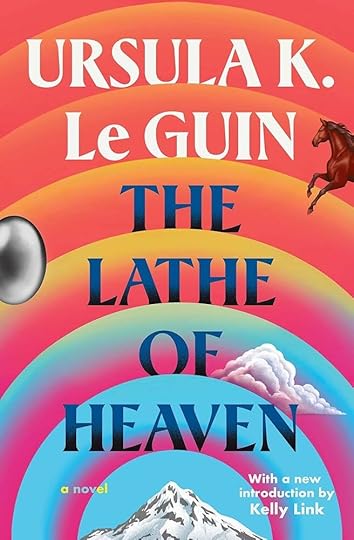
I was excited to read Ursula K. Le Guin’s The Lathe of Heaven because it is short, a classic, and I hadn’t gotten around to Earthsea just yet. I think I was expecting more fantasy than science fiction, but I have loved classic sci-fi before (like Ray Bradbury). For the first while I was just okay with it, but it kept me reading. And by the time I finished, and even moreso as I discussed it with others, I realized that I really liked the book. It’s a great book. Almost everyone at book club agreed. For some people, it’s even one of those books they come back to again and again, which I totally understand.
George Orr has been trying to stay awake, indefinitely, or at least drug himself into dreamless nights. But drugs are regulated in an overpopulated, near-scorched-Earth future, and George is sent to a psychiatrist, Dr. Haber, to keep him out of prison for drug use. But how could Haber help him if he’s sure not to even believe him?: George’s been avoiding sleep because sometimes his dreams change reality. It doesn’t take long before Haber catches on and George is looking for help, any kind of help, to get him out from under Haber’s “care,” the world continuing to shift as the dreams stretch, under Haber’s control, for a utopia that is completely out of reach.
I read this book for my speculative fiction book club. I was expecting the high fantasy of Le Guin’s popular Earthsea Cycle, but it turns out she is also famous for sci fi and for a number of other books and worlds, like The Left Hand of Darkness and The Dispossessed, both of which are on my TBR even though I wouldn’t have known them if they bit me in the butt.
By the end of the book, I had some real Wrinkle in Time vibes, but I actually think The Lathe of Heaven delivers in ways that Wrinkle did not. Not that they’re totally similar. (I mean, Lathe is for an adult audience while Wrinkle is for kids.) Lathe starts slow, but at some point you realize that the book is laced with a series of surprises and twists delivered (mostly) with quiet subtlety, moments in which suddenly there is ice in your stomach or you’re gritting your teeth. Part of me could not believe this was published in 1971 except that it does have that classic sci-fi feel. Others said they felt some of it was out of date, but I really didn’t think so at all—the amount of insight that Le Guin had regarding the problems and culture of today coupled with the reality of the world she paints being totally believable as just a decade or so in our future… I was stunned by how much Lathe still resonates for us in 2024.
Like I said, I enjoyed the twists and turns. The reading experience was great. The book is short, almost a novella, with an impressive writing style. It doesn’t actually have time travel in it, but there are elements to the plot that would make it appealing to readers who enjoy time travel literature. And in the end, well, I liked the way it ended, like what it had to say as a book in the final chapters. (I agree with some people that the climax was a bit psychedelic or disjointed or something, confusing maybe, and that George didn’t quite earn his ending, but overall I was happy with it.)
Central to Lathe is Le Guin’s Taoism. Yes, Taoism. It influenced many of her works, but here we know it is overt because the title comes from a translation of the Tao Te Ching. There is a lengthy but interesting article about her Taoism and its effects on her works at Inglenook Lit, which I encourage you to read it this is interesting to you. Someone in book club even brought up The Tao of Pooh, a Western simplification of Taoism taught through the character of Winnie-the-Pooh (by Benjamin Hoff) that I read—in my free time—in college. So while someone at book club complained that George “couldn’t punch his way out of a paper bag,” this is a pretty Western way of seeing an Eastern-inspired character. Personally, I liked George. I know laid back people like him and there is plenty to respect about this approach to life (though George floundered because he had to grow or where would the story be and he didn’t have it all together).
It would make a great re-read, what with all the themes of Taoism versus Utilitarianism, East versus West, dominance versus submissiveness, responsibility, heroism, dreams, power, even race and environmentalism. Even the good guys in Lathe have kernels of corruption. The Second Law of Thermodynamics is in play, here, as life marches ever toward chaos even as hopeful dictators strive toward a utopia that can never be. (You could also read this as yin/yang and how balance prevails.) There is no totally winning scenario in this “Monkey’s Paw” of a story. As another person at book club said, “This is an ideas book, first.” Like a lot of speculative fiction, especially sci-fi, the characters and setting are tools being used for a greater message. It’s not a character study. It’s a warning.
And though George gives himself away with his last name, Orr (= either/or), I didn’t think George was just faffing about. (Haber also refers to hubris and George Orr’s name could also be a reference to George Orwell.) There was some action in George, he was just in an impossible position on an impossible timeline. He didn’t have time to figure it out, especially when others were willing to be so violent with their good intentions. Passion is part of humanity, it contributes to our quality of life, even, but what does it lead to? Humans are not very good at turning good intentions into real health and solutions, it turns out.
There are other things, too. Some call it a comedy. If so, it’s very dry. And the sub-theme regarding race is done so well. Le Guin was certainly thinking ahead of her time, lamenting the idea of a gray race with the line, “You should be brown.” Identity is important. Life would be missing something essential if we were clones, if we were homogenous.
So, yeah, I liked this book, maybe even loved it. I handed it off to my husband because I knew that he, too, would really enjoy it. (He is; he’s almost done.) It’s a classic of science fiction, one that I think can be read fairly easily even still. There’s a lot to talk about, but it can also be read simply for enjoyment, the enjoyment of good storytelling and good writing style.

 Image from The New York Times
Image from The New York TimesUrsula K. Le Guin was born in the 1920s and started publishing sci fi and fantasy in the 60s. By the time she died at almost 90 years old, she had published 23 novels, 12 short story collections, 11 poetry collections, 13 children’s books, five essay collections, and four translations (including the Tao Te Ching). She received six Nebula Awards and seven Hugos, a PEN, National Book Foundation Medal for Contribution to American Letters, and many others.
Some of her award-winning books include:
The Books of Earthsea, beginning with The Wizard of EarthseaThe Novels of the Ecumen beginning with Rocannon’s World and including both The Left Hand of Darkness and The DispossessedThe Lathe of HeavenThe Winds Twelve Quarters (short story collection)Dancing at the Edge of the World (essay collection)A Fisherman of the Inland Sea (short stories)Always Coming HomeIf you read the Books of Earthsea, the Novels of Ecumen, and The Lathe of Heaven, you have probably covered her best work.
Her website is still in operation and you can find lots of information HERE.

“…for in the deep sea there is no compass but nearer and farther, higher and lower…” (p1).
“…the most vulnerable and insubstantial creature [jellyfish], it has for its defense the violence and power of the whole ocean, to which it has entrusted its being, its going, and its will” (p1).
“So often he knew what his patients were going to say, and could say it for them better than they could say it for themselves. But it was their taking the step that counted” (p10).
“The insistent permissiveness of the late twentieth century had produced fully as much sex-guilt and sex-fear in its heirs as had the insistent repressiveness of the late nineteenth century” (p12).
“Orr had a tendency to assume that people knew what they were doing, perhaps because he generally assumed that he did not” (p29).
“He thought, I am living in a nightmare, from which from time to time I wake in sleep” (p38).
“What sane person could live in this world and not be crazy?” (p44).
“”It occurs in other brains, undoubtedly. Nothing’s new” (p62).
“…he had accepted it totally, just as they did, as the only reality. He had suppressed his memory of the fact that, until last Friday, this had not been the way it was” (p63).
“My God, he thought, what has Orr done? / Six billion people. Where are they?” (p65).
“The danger was past. She was rejecting the incredible experience. She was asking herself now, what’s wrong with me?” (p65).
“Of course, Haber thought, a man who saw a miracle would reject his eye’s witness, if those with him was nothing” (p65).
“That’s what strikes humans as uncanny about sleep. Its utter privacy. The sleeper turns his back on everyone” (pp66-67).
“But he’s not a mad scientist, Orr thought dully, he’s a pretty sane one, or he was. It’s the chance of power that my dreams give him that twists him around” (p75).
“Haber was, after all, a benevolent man, And besides, he didn’t want to kill the goose that laid the golden eggs” (p77).
“Nothing will keep a man from dreaming, he had said, but death” (p79).
“You speak as if that were some kind of general moral imperative” (p82).
“What we do is like wind blowing on the grass” (p82).
“This was the way he had to go; he had no choice. Be had never had any choice. He was only a dreamer” (p83).
“’Out of the frying pan into the fire,’ Orr said. ‘Don’t you see, Dr. Haber, that’s all you’ll ever get from me?’” (p86).
“’What kind of monsters have you dredged up out of my unconscious mind, in the name of peace? I don’t even know!’” (p87).
“For all he knew, Haber was incapable of sincerity because he was lying to himself” (p87).
“Look, if you ask me to dream again, what will you get? Maybe a totally insane world, the product of an insane mind. Monsters, ghosts, witches, dragons, transformations—all the stuff we carry around with us, all the horrors of childhood, the night fears, the nightmares. How can you keep all that from getting loose? I can’t stop it. I’m not in control!” (p88).
“Liar builds pitfall, falls in it” (p91).
“…a man whose personal dignity went so deep as to be nearly invisible …. It was more than dignity. Integrity? Wholeness?” (p96).
“Are there really people without resentment, without hate? she wondered. People who never go cross-grained to the universe? Who recognize evil, and resist evil, and yet are utterly unaffected by it?” (p100).
“This isn’t real. This world isn’t even probable. It was the truth. It was what happened. We’re all dead, and we spoiled the world before we died. There is nothing left. Nothing but dreams …. ‘So what? Maybe that’s all that’s ever been!’” (p107).
“Only those who have denied their being yearn to play at [being God]” (p109).
“He needed somebody, anybody, to talk to, he had to tell them what he felt so that he knew if he felt anything” (p115).
“Great self-destruction follows upon unfounded fear” (p121).
“If Haber had suggested that he dream up a nobler race of men, he had failed to do so” (p127).
“But now, never to have known a woman with brown skin, brown skin and wiry black hair cut very short so that the elegant line of the skull showed like the curve of a bronze vase—no, that was wrong” (p130).
“This building could stand up to anything left on Earth, except perhaps Mount Hood. Or a bad dream” (p136).
“’Life—evolution—the whole universe of space-time, matter/energy—existence itself—is essentially change.’ / ‘That is one aspect of it,’ Orr said. ‘The other is stillness’” (p139).
“Life itself is a huge gamble against the odds, against all odds! You can’t try to live safely, there’s no such thing as safety” (p139).
“I know you’d give her the serum, because you have it, and feel sorry for her. But you don’t know whether what you’re doing is good or evil or both…” (p140).
“Love doesn’t just sit there, like a stone, it has to be made, like bread; remade all the time, made new” (p159).
“He seemed not to know the uses of silence” (p164).
“There is time. There are returns. To go is to return” (p184).

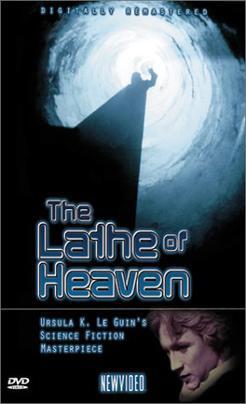

The Lathe of Heaven has been made into a movie at least twice. The 1980 version is, I’m sure, largely out of date in some ways, but it has high ratings. Maybe we should approach it as a movie of ideas? The 2002 made-for-TV movie didn’t get as much respect, but it does star Lisa Bonet, aka. Denise from The Cosby Show and A Different World. (I was a big fan of Denise.) Maybe my husband and I will try to find copies of at least the 1980 version and watch it in the next couple weeks.



